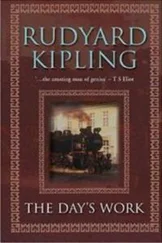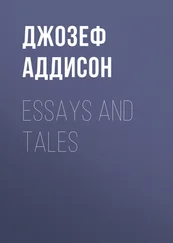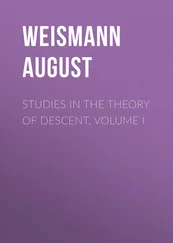Джозеф Аддисон - The Tatler, Volume 1
Здесь есть возможность читать онлайн «Джозеф Аддисон - The Tatler, Volume 1» — ознакомительный отрывок электронной книги совершенно бесплатно, а после прочтения отрывка купить полную версию. В некоторых случаях можно слушать аудио, скачать через торрент в формате fb2 и присутствует краткое содержание. Жанр: foreign_prose, foreign_antique, на английском языке. Описание произведения, (предисловие) а так же отзывы посетителей доступны на портале библиотеки ЛибКат.
- Название:The Tatler, Volume 1
- Автор:
- Жанр:
- Год:неизвестен
- ISBN:нет данных
- Рейтинг книги:4 / 5. Голосов: 1
-
Избранное:Добавить в избранное
- Отзывы:
-
Ваша оценка:
- 80
- 1
- 2
- 3
- 4
- 5
The Tatler, Volume 1: краткое содержание, описание и аннотация
Предлагаем к чтению аннотацию, описание, краткое содержание или предисловие (зависит от того, что написал сам автор книги «The Tatler, Volume 1»). Если вы не нашли необходимую информацию о книге — напишите в комментариях, мы постараемся отыскать её.
The Tatler, Volume 1 — читать онлайн ознакомительный отрывок
Ниже представлен текст книги, разбитый по страницам. Система сохранения места последней прочитанной страницы, позволяет с удобством читать онлайн бесплатно книгу «The Tatler, Volume 1», без необходимости каждый раз заново искать на чём Вы остановились. Поставьте закладку, и сможете в любой момент перейти на страницу, на которой закончили чтение.
Интервал:
Закладка:
No. 9.
[STEELE.
From Thursday, April 28 , to Saturday, April 30 , 1709
Will's Coffee-house, April 28
This evening we were entertained with "The Old Bachelor," 152 152 Congreve's first play, produced in 1693. See also No. 193. This piece is attacked in Jeremy Collier's "Short View of the Profaneness and Immorality of the English Stage," 1698.
a comedy of deserved reputation. In the character which gives name to the play, there is excellently represented the reluctance of a battered debauchee to come into the trammels of order and decency: he neither languishes nor burns, but frets for love. The gentlemen of more regular behaviour are drawn with much spirit and wit, and the drama introduced by the dialogue of the first scene with uncommon, yet natural conversation. The part of Fondlewife is a lively image of the unseasonable fondness of age and impotence. But instead of such agreeable works as these, the town has this half age been tormented with insects called "easy writers," whose abilities Mr. Wycherley one day described excellently well in one word: "That," said he, "among these fellows is called easy writing, which any one may easily write." Such jaunty scribblers are so justly laughed at for their sonnets on Phillis and Chloris, and fantastical descriptions in them, that an ingenious kinsman of mine, 153 153 Swift.
of the family of the Staffs, Mr. Humphrey Wagstaff by name, has, to avoid their strain, run into a way perfectly new, and described things exactly as they happen: he never forms fields, or nymphs, or groves, where they are not, but makes the incidents just as they really appear. For an example of it; I stole out of his manuscript the following lines: they are a Description of the Morning, but of the morning in town; nay, of the morning at this end of the town, where my kinsman at present lodges.
Now hardly here and there an hackney coach
Appearing, showed the ruddy morn's approach.
Now Betty from her master's bed had flown,
And softly stole to discompose her own.
The slipshod 'prentice from his master's door,
Had pared the street, and sprinkled round the floor.
Now Moll had whirled her mop with dext'rous airs,
Prepared to scrub the entry and the stairs.
The youth with broomy stumps began to trace
The kennel edge, where wheels had worn the place.
The smallcoal-man was heard with cadence deep,
Till drowned in shriller notes of chimney-sweep.
Duns at his lordship's gate began to meet;
And Brickdust Moll had screamed through half a street;
The turnkey now his flock returning sees,
Duly let out at nights to steal for fees.
The watchful bailiffs take their silent stands;
And schoolboys lag with satchels in their hands.
All that I apprehend is, that dear Numps will be angry I have published these lines; not that he has any reason to be ashamed of them, but for fear of those rogues, the bane to all excellent performances, the imitators. Therefore, beforehand, I bar all descriptions of the evenings; as, a medley of verses signifying, grey-peas are now cried warm: that wenches now begin to amble round the passages of the playhouse: or of noon; as, that fine ladies and great beaux are just yawning out of their beds and windows in Pall Mall, and so forth. I forewarn also all persons from encouraging any draughts after my cousin; and foretell any man who shall go about to imitate him, that he will be very insipid. The family stock is embarked in this design, and we will not admit of counterfeits: Dr. Anderson 154 154 A Scotch physician in the reigns of Charles I. and Charles II. An advertisement of his "famous Scots Pills" requested the public to beware of counterfeits, especially an ignorant pretender, one Muffen, who kept a china-shop.
and his heirs enjoy his pills, Sir. William Read 155 155 "Henley would fain have me to go with Steele and Rowe, &c., to an invitation at Sir William Read's. Surely you have heard of him. He has been a mountebank, and is the Queen's oculist; he makes admirable punch, and treats you in gold vessels. But I am engaged, and won't go; neither indeed am I fond of the jaunt" (Swift's "Journal," April 11, 1711). Read was knighted in 1705, for services done in curing soldiers and sailors of blindness gratis. Beginning life as a tailor, he became Queen Anne's oculist in ordinary, and died in 1715. See Spectator , No. 547.
has the cure of eyes, and Monsieur Rozelli 156 156 Rozelli, the inventor of a specific for the gout, died at the Hague. In No. 33 was an advertisement of the "Memoirs of the Life and Adventures of Signior Rozelli, at the Hague, giving a particular account of his birth, education, slavery, monastic state, imprisonment in the Inquisition at Rome, and the different figures he has since made, as well in Italy, as in France and Holland.... Done into English from the second edition of the French." This work, like the continuation of 1724, has been wrongly attributed to Defoe. Rozelli advertised in the London Gazette , for July 19, 1709, that the book was entirely fictitious, and a libel upon his character.
can only cure the gout. We pretend to none of these things; but to examine who and who are together, to tell any mistaken man he is not what he believes he is, to distinguish merit, and expose false pretences to it, is a liberty our family has by law in them, from an intermarriage with a daughter of Mr. Scoggan, 157 157 We learn from Ben Jonson, that Scoggan, or Skogan, was M.A., and lived in the time of Henry IV. "He made disguises for the King's sons, writ in ballad-royal daintily well, and was regarded and rewarded." Jonson calls him the moral Skogan; and introduces him with Skelton, the poet laureate of Henry VIII., into his Masque, entitled "The Fortunate Isles," where he keeps them in character, and makes them rhyme in their own manner.
the famous droll of the last century. This right I design to make use of; but will not encroach upon the above-mentioned adepts, or any other. At the same time I shall take all the privileges I may, as an Englishman, and will lay hold of the late Act of Naturalisation 158 158 7 Anne, cap. 5, was an "Act for naturalising Foreign Protestants." After the preamble, "Whereas many strangers of the Protestant or reformed religion would be induced to transport themselves and their estates into this kingdom, if they might be made partakers of the advantages and privileges which the natural-born subjects thereof do enjoy," it was enacted that all persons taking the oaths, and making and subscribing the declaration appointed by 6 Anne, cap. 23, should be deemed natural-born subjects; but no person was to have the benefit of this Act unless he received the sacrament. The Act was repealed by 10 Anne, c. 5, because "divers mischiefs and inconveniences have been found by experience to follow from the same, to the discouragement of the natural-born subjects of this kingdom, and to the detriment of the trade and wealth thereof."
to introduce what I shall think fit from France. The use of that law may, I hope, be extended to people the polite world with new characters, as well as the kingdom itself with new subjects. Therefore an author of that nation, called La Bruyère, I shall make bold with on such occasions. The last person I read of in that writer, was Lord Timon. 159 159 It has been alleged that there is here an allusion to the Duke of Ormond, whose servants enriched themselves at their master's expense (see Examiner , vol. iii. p. 48). But in the Guardian , No. 53, Steele, writing in his own name, declared that the character of Timon was not disgraceful, and that when he drew it he thought it resembled himself more than any one else.
Timon, says my author, is the most generous of all men; but is so hurried away with that strong impulse of bestowing, that he confers benefits without distinction, and is munificent without laying obligations. For all the unworthy, who receive from him, have so little sense of this noble infirmity, that they look upon themselves rather as partners in a spoil, than partakers of a bounty. The other day, coming into Paris, I met Timon going out on horseback, attended only by one servant. It struck me with a sudden damp, to see a man of so excellent a disposition, and that understood making a figure so very well, so much shortened in his retinue. But passing by his house, I saw his great coach break to pieces before his door, and by a strange enchantment, immediately turned into many different vehicles. The first was a very pretty chariot, into which stepped his lordship's secretary. The second was hung a little heavier; into that strutted the fat steward. In an instant followed a chaise, which was entered by the butler. The rest of the body and wheels were forthwith changed into go-carts, and ran away with by the nurses and brats of the rest of the family. What makes these misfortunes in the affairs of Timon the more astonishing, is, that he has a better understanding than those who cheat him; so that a man knows not which more to wonder at, the indifference of the master, or the impudence of the servant.
Интервал:
Закладка:
Похожие книги на «The Tatler, Volume 1»
Представляем Вашему вниманию похожие книги на «The Tatler, Volume 1» списком для выбора. Мы отобрали схожую по названию и смыслу литературу в надежде предоставить читателям больше вариантов отыскать новые, интересные, ещё непрочитанные произведения.
Обсуждение, отзывы о книге «The Tatler, Volume 1» и просто собственные мнения читателей. Оставьте ваши комментарии, напишите, что Вы думаете о произведении, его смысле или главных героях. Укажите что конкретно понравилось, а что нет, и почему Вы так считаете.












